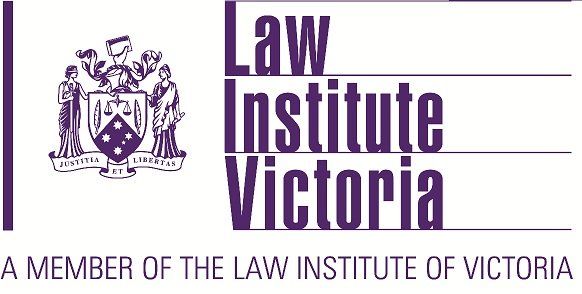Estate Planning Serving Ashburton, Chadstone and Surrounding Areas.
Experienced and Trusted Team
Our experienced Wills & Estates lawyers are able to provide you with timely and practical advice in relation to all your Estate planning and Probate needs including:-
- Wills
- Testamentary Trusts
- Special Disability Trusts
- Succession planning for Superannuation and Family Trusts
- Complex Estate planning
- Powers of Attorney (Financial, Medical Treatment and Guardianship)
- Challenges to Wills and Family Provision Claims
- Obtaining Grants of Probate
- Obtaining Letters of Administration
- General Estate Administration
For more information on our services see:
- Wills & Estate Planning
- Grants of Probate and Estate Administration
- Enduring Powers of Attorney
Wills & Estate Planning
Wills & Estate Planning
A Will is a written document which declares how you want your assets to be distributed on your death. Without a legal Will, your Estate will be distributed in accordance with a formula set out in legislation which may not reflect your wishes. Engaging a lawyer to assist you with preparing your Will ensures that your Will is prepared in accordance with the legal requirements and effectively carries out your wishes.
How often should I review my Will?
We would generally recommend reviewing your Will every 5 years to ensure that it still reflects your wishes and current circumstances.
You may need to review your Will at an earlier stage if your circumstances have changed significantly. Examples of circumstances in which you may need to review or change your Will are:-
- You marry after making your Will (this is particularly important as a Will can be revoked upon marriage)
- You have divorced or separated from your partner
- You change your name or someone named in your Will changes theirs
- If an Executor dies or becomes unsuitable to act (i.e. due to age or ill-health)
- If a beneficiary dies
- If you have specifically left any property which you subsequently sell or which changes in nature
- When you have concerns about a beneficiary’s personal circumstances, such as divorce, separation or bankruptcy.
For more frequently asked questions and a glossary of common legal terms, please read our Your Will brochure.
Why do I need to consider Estate planning?
Whilst you may already have a Will in place, you should also consider on overall Estate management plan which takes into account all your personal circumstances.
For example, did you know that without having appropriate documentation in place your superannuation trustee can decide who your superannuation is paid to upon your death? Did you also know that any assets held in your Family Trust will not form part of your Estate and cannot be dealt with by your Will?
Estate planning requires not only taking into account your current circumstances, but planning for the future and any issues that may arise with not only you but the beneficiaries of your Will.
At Lobb & Kerr, our lawyers have the expertise to assist you in creating a succession plan that addresses your personal needs so you can feel comfortable in knowing that your affairs will be taken care of when you pass away.
Grants of Probate and Estate Administration
What is a Grant of Probate?
Probate is the process of proving and registering the Will in Court which then allows the Executor named in the Will to collect the assets and administer the Estate.
A Grant of Probate will generally be required for:-
- Access to the deceased’s bank accounts
- Obtaining the Certificate of Title and selling the deceased’s property
- Collecting and administering the deceased’s assets
If you are an Executor named in a Will, we can assist you with all aspects of Estate Administration including obtaining the Grant of Probate, arranging for the collection of the deceased’s assets, payment of debts and attending to distribution of the Estate to the beneficiaries named in the Will.
As we understand that this process may be difficult for some Executors, particularly upon the death of a loved one, we strive to make this process as simple and efficient as we can for you by taking on the burdens of the everyday complexities of estate administration.
What if someone challenges the Will?
In the event a Will is challenged, may be challenged or if there are any disputes in relation to the Estate, our lawyers are able to provide Executors and beneficiaries with guidance and advice as to their rights and obligations as well as the likely success of such a challenge.
We also have significant experience in all litigation aspects of Will challenges including appearing in the Supreme Court of Victoria, County Court of Victoria and mediations.
What happens if somebody dies without a legal Will?
Where a person has died without a legal Will, they are considered to have died ‘intestate’ and it is the law that decides not only who will administer the Estate but who it is distributed to. The person who is to administer the Estate (essentially the same as an Executor) may need to obtain from the Court a Grant of Letters of Administration which, like a Grant of Probate, authorises them to collect and distribute the assets of the Estate.
What information do I need to bring to my initial appointment?
If you are an Executor appointed in the Will of a person who has passed away, we ask that you bring with you as much of the following information/documentation as you can:
- The original Will
- The original Death Certificate (where possible as the Death Certificate generally issues approximately 3-6 weeks after the funeral)
- Any original Certificate of Titles for property
- Full names and current addresses of all beneficiaries named in the Will
- Details of all assets and liabilities of the deceased including bank accounts, investments, superannuation, shares, life insurance policies. It is generally of great assistance to us if you bring in the most recent statements/letters you can find in relation to those assets as they include the relevant account numbers.
- Any original identification (i.e. Passport or Drivers Licence) you may have of the deceased.
Please also let us know if you or the deceased are known by any other name than is stated in the Will.
For more information on what it means to be an Executor and how Estate administration works please read the brochure Guide for Executors.
Enduring Powers of Attorney
An Enduring Power of Attorney is a legal document authorising a person (your appointed Attorney) to act on your behalf. Depending on the type of power given, your appointed attorney may be able to make financial, legal, medical and personal lifestyle decisions for you.
Having an Enduring Power of Attorney is important in case you become physically or mentally incapable of managing your own affairs or are absent for a period of time. Although it is commonly thought that Enduring Powers of Attorney are only relevant to elderly people, you need to think of not only planning for your future, but planning for unforeseen circumstances such an accident or serious illness.
In Victoria, there are presently two types of Enduring Powers of Attorney available:
- Enduring Power of Attorney (for Financial/Legal and Personal Matters)
- Enduring Power of Attorney (Medical Treatment)
What is an Enduring Power of Attorney (for Financial/Legal and Personal Matters)?
This Enduring Power of Attorney authorises your attorney to make:
- Financial and legal decisions on your behalf; or
- Personal lifestyle decisions on your behalf; or
- Both of the above
These are quite broad powers and a person appointed to this role can, amongst other things, sell your house, access your bank accounts or determine where you are to live. Accordingly, you need to carefully consider and discuss with us the most appropriate person to appoint as your Attorney.
In making this Enduring Power of Attorney, you can appoint more than one person to act as your Attorney and you can also appoint someone to be an Alternative Attorney in case your original Attorney passes away or is unable to act.
You can also specify:
- Which Attorney can make decisions about financial and legal decisions and which Attorney can make decisions about personal matters. You can appoint an Attorney to make decisions about both matters.
- When the Power of Attorney is to come into operation for financial matters and for personal matters.
- Whether the Attorneys are limited or restricted in their powers
- Whether the Attorneys are to act jointly or whether they can exercise the powers individually or by majority.
What is an Enduring Power of Attorney (Medical Treatment)?
An Enduring Power of Attorney (Medical Treatment) allows you to appoint a medical ‘agent’ to make decisions of your behalf about what medical treatment you are to receive (or refuse medical treatment) in the event you cannot make those decisions for yourself.
You can only appoint one person to act as your agent; you cannot appoint two people jointly. You can, however, appoint an alternative agent in case your original agent is unable to make decisions.
Do Enduring Powers of Guardianship still exist?
As of September 2015, new legislation replaced the Enduring Power of Guardianship with the Enduring Power of Attorney (for personal matters) mentioned above. If you have an existing Enduring Power of Guardianship, it will not be affected by the legislative change.
We’re just a phone call away.


